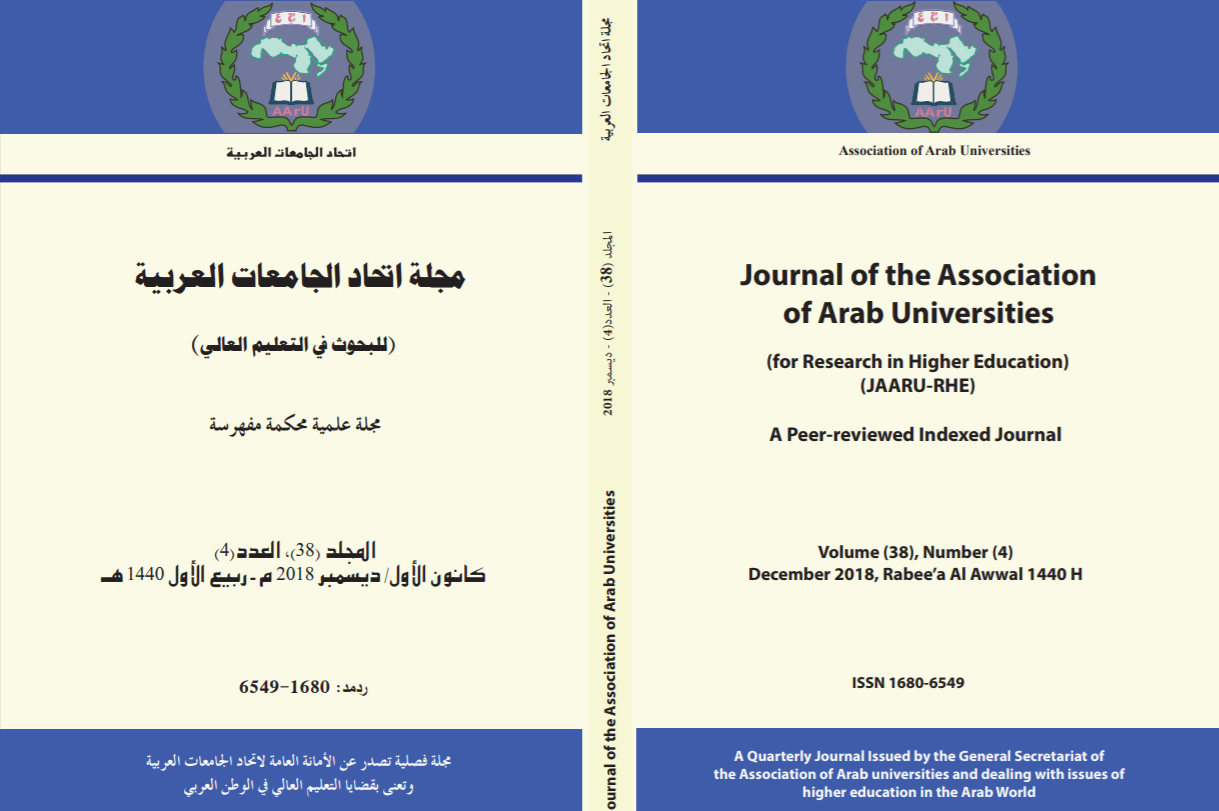Journal of the Association of Arab Universities for Research in Higher Education (مجلة اتحاد الجامعات العربية (للبحوث في التعليم العالي

Abstract
هدف المقال الى معرفة تأثير المنظمات الإقتصادية الدولية على التنمية الإقتصادية في الأردن خلال الفترة (1990م-2020م)، وهي الفترة التي شهدت قيام الأردن بتبني العديد من برامج الإصلاح الإقتصادي المنبثقة عن المنظمات الإقتصادية الدولية متمثلةً بصندوق النقد والبنك الدوليين، وذلك من أجل النهوض بالتنمية الإقتصادية، والحد من الإختلالات الإقتصادية الخارجية والداخلية المتمثلة بإرتفاع نسبة المديونية وعجز الموازنة العامة، حيث هدفت تلك البرامج الى زيادة النمو الاقتصادي للأردن، ورفع الإنتاجية ومحاربة الفقر وتشجيع الإستثمار الأجنبي، وتعزيز قدرة الأردن على تحقيق التوازن الداخلي والخارجي للمدفوعات والمحافظة عليها، إلا ان نتائج البحث أظهرت على المدى الطويل فشل البرامج المطبقة في تحقيق أهدافها التنموية، على الرغم من تحقيقها نجاحاً آنياً على عدد من المؤشرات الإقتصادية في بعض الفترات، وبالتالي الفشل في تحقيق التنمية الإقتصادية المستدامة، كما لوحظ ان البرامج المطبقة في الأردن قد ساهمت في زيادة معدلات الفقر والبطالة بسبب رفع الدعم عن السلع والخدمات الأساسية والمشتقات النفطية ورفع الضرائب المفروضة، مما إنعكس سلباً على معيشة الأفراد وإضعاف القوة الشرائية لهم بسبب إرتفاع كلف الإنتاج. حيث كانت البرامج المطبقة تستهدف تعزيز مقدرة الأردن على الوفاء بإلتزاماته وتركيزها على جانب الطلب الكلي مع إهمال جانب العرض الكلي، فضلاً عن الظروف الإقليمية التي شكلت عائقاً أمام الأردن في تطبيق البرامج بشكلها الصحيح
The article aimed to know the impact of international economic organizations on economic development in Jordan during the period (1990 AD-2020 AD), which is the period that witnessed Jordan adopting many economic reform programs emanating from international economic organizations represented by the International Monetary Fund and the World Bank, in order to advance economic development , and reducing the external and internal economic imbalances represented by the high rate of indebtedness and the general budget deficit, as these programs aimed to increase Jordan's economic growth, raise productivity, fight poverty, encourage foreign investment, and enhance Jordan's ability to achieve and maintain internal and external balance of payments, however, the results of the research showed In the long run, the applied programs fail to achieve their development goals, despite their immediate success on a number of economic indicators in some periods, and thus the failure to achieve sustainable economic development. Subsidy on basic commodities and services, oil derivatives, and raising taxes, which was negatively reflected It affects the livelihood of individuals and weakens their purchasing power due to the high costs of production. Whereas the implemented programs aimed at strengthening Jordan's ability to fulfill its obligations and focusing on the aggregate demand side while neglecting the aggregate supply side, in addition to the regional conditions that constituted an obstacle to Jordan in implementing the programs in their correct form
Recommended Citation
Al-hyari, Zaid Ghaleb and Al-katatsheh, Muhammad Hamad
(2024)
"تأثير المنظمات الاقتصادية الدولية على التنمية الإقتصادية في الوطن العربي دراسة حالة الأردن (1990م-2020م),"
Journal of the Association of Arab Universities for Research in Higher Education (مجلة اتحاد الجامعات العربية (للبحوث في التعليم العالي: Vol. 44:
Iss.
1, Article 6.
Available at:
https://digitalcommons.aaru.edu.jo/jaaru_rhe/vol44/iss1/6

